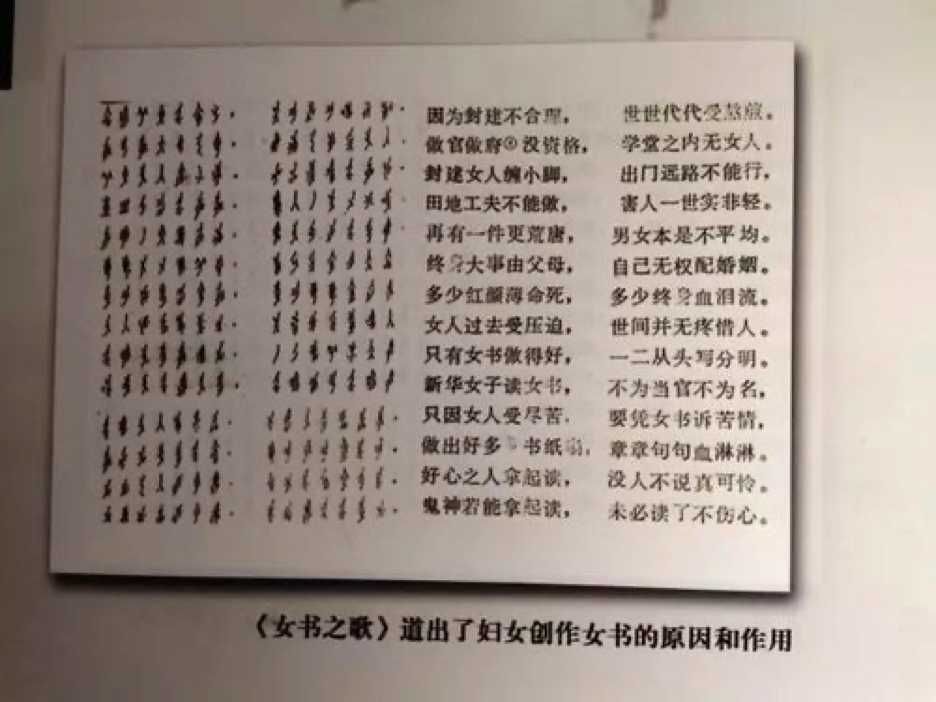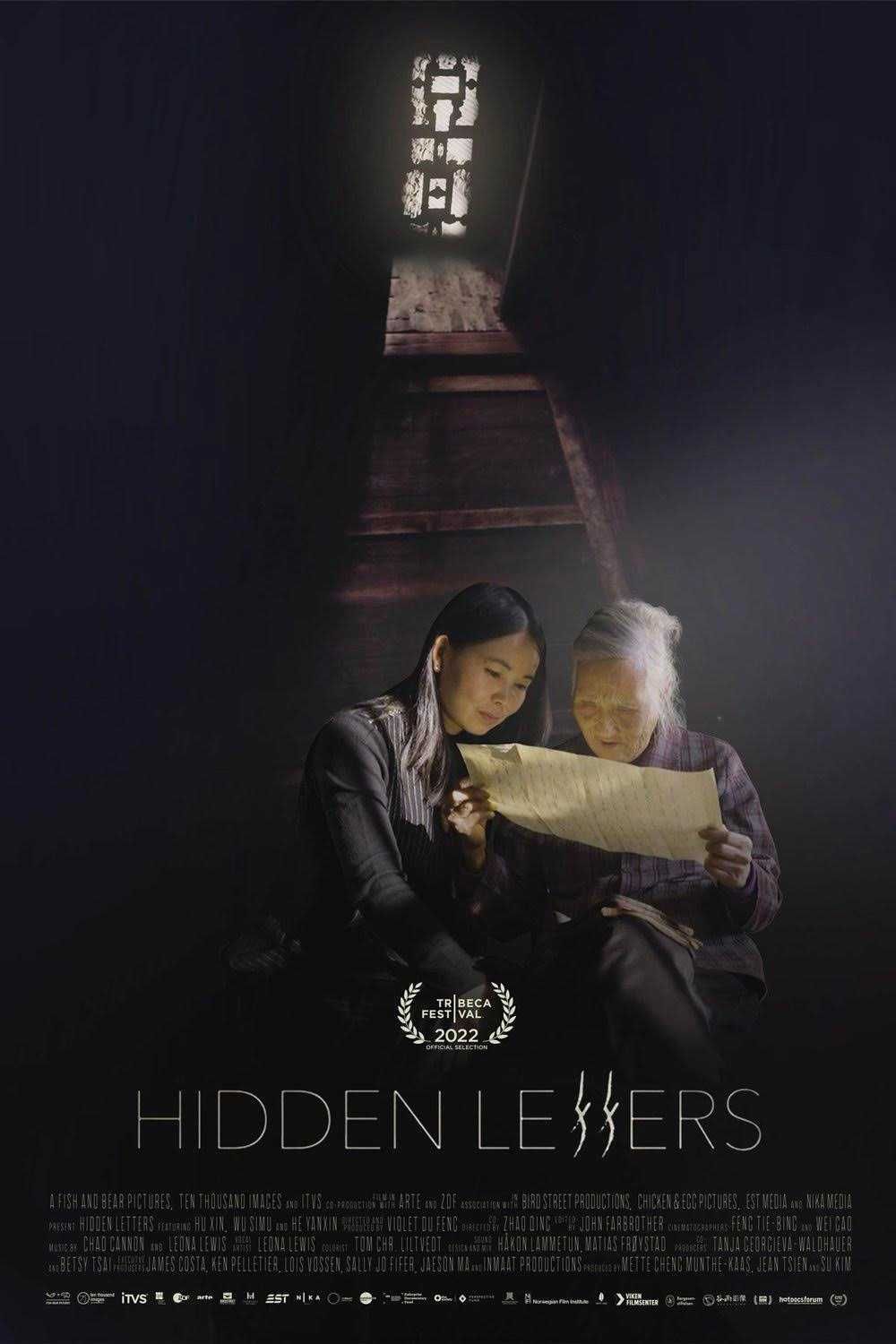Film Critic|The reality of "Nv Shu": Women's blood and tears can be watched, but they don't need to be understood
BySabrina2023/02/27
The documentary "Nv Shu" reflects the situation of Nv Shu in contemporary China through the career and life of the two female protagonists, and it is also a manifestation of contemporary gender issues.
In October last year, I was honored to go to the 2022 BFI (British Film Institute) London Film Festival with my friends and watched a film called "Hidden Letter" (Chinese translation "Nu Shu", also known as "Secret Language") ") documentaries.
From the perspective of two contemporary Chinese women, Hu Xin and Wu Simu, the film unfolds their stories about Nushu, focusing on the "opportunities" they and Nushu face in today's complex and rapidly changing Chinese society and challenges, as well as the difficulties and struggles, wisdom and growth shown by women in the face of more complex and delicate discipline and oppression. Unsurprisingly, the main creative team of the film is basically an all-female team, and both directors were born in mainland China.
Chief director and producer Violet Du Feng, born in Shanghai, China, now lives in New York, USA. The works she participated in have won the Emmy Award for Best Documentary, the Sundance Film Festival Jury Award and the US News Top Award. Bodie Award, etc. Co-director Zhao Qing is a Chinese documentary director who works for Shanghai TV Station and is also a director of excellent TV programs. He once participated in the production of the reality show "Adventurous Life" (Douban scored 8.7 points in the first season).
Maybe many people, like me, know about Nüshu through a well-known movie "Snow Flower and Secret Fan", which is a remake of the novel of the same name. This movie uses Nüshu as a medium to tell the story of two female friendships that span time and space. Nushu, as a language created by women to break the knowledge monopoly of men in ancient society, allows women as a "person" to record their own experiences and emotions, and to connect with sisters who are imprisoned in deep houses. To complain about social injustice . Nushu used to be secretly circulated and passed down among women in some areas of China. Of course, it was also burned with the death of the owner. The currently preserved Nvshu mainly originated from Jiangyong, Hunan, and it was also destroyed during the "Destroying the Four Olds" period of the Cultural Revolution. After that, only a few elderly women could read and write Nushu. In the 21st century, Nushu began to be seen again as a unique and rare culture. Like women in the new era, they entered the global capital market from the closed courtyard.

1 Nvshu whose surplus value is constantly being squeezed
As a feminist, my previous understanding of Nushu is that it is a proof of women's brave resistance to patriarchal confinement, and it is a symbol of feminism. But through the director's lens, I found that it was my lack of imagination that caused me to have such a "narrow" understanding of the value and use of Nushu.
Following the director's lens, we can see in amazement: Nvshu can be used to run female Durban, and cultivate contemporary middle-class girls to become princesses who combine Western "aristocratic" temperament and Eastern etiquette; it can develop local tourism, and even local adults Supplies stores need a Nvshu signboard; they can make Nvshu-themed mobile phones, although they may be shut down on the spot at the press conference; they can engage in cultural and creative activities, so that men wearing Nvshu cultural shirts feel that they care more about women; they can be used as IP , "cross-border joint name" with global chain fast food brands such as KFC; can participate in politics, represent Chinese culture to the United Nations to promote the Belt and Road Initiative...
In contrast to the heavy female history carried by Nushu, the audience and I laughed tacitly while watching the film. The documentary footage shows the ugliness and indescribable embarrassment of real life, which really brings the sense of absurdity to the extreme. To be honest, I admire the director's use of this humorous camera language to deconstruct those vanity fairs, and also to convey to us seriously by making the audience laugh: Nushu is being embraced by the patriarchal society and society in an unusually funny way. Capitalist double consumption is just like how they treat women, and they will never stop eating and wiping it off.
2 The same female predicament under urban-rural differences
In the film, the director also showed another clue through the two heroines in different situations. That is, under the huge urban-rural differences in Chinese society, women actually face the same dilemma and struggle. Hu Xin, an inheritor of Nushu who was born and raised in Jiangyong County; Simu, an urban woman living in Shanghai. Their lives are not completely limited by the urban and rural areas where they live. As the successor of Nushu, Hu Xin needs to attend many major events in the metropolis; while Simu is talking about marriage, she needs to go back to the man's hometown in the countryside to meet his in-laws.
Through the film's presentation of their work and life, we can also find out: Is it only the young men in the village cultural center who harass the heroine when she is working and say "Can I make friends with you?" No, the Puxin men in the city will also point out "Your Nvshu should be written bigger"; Is it only the male village party secretary who says contemporary women should learn obedience from Nvshu? No, the male leaders in the city can talk about equality between men and women while cutting the ribbon at women's events ; the women in the village are in the kitchen and the men are in the living room. The women in the city perform on stage, and the men push and change glasses off the stage; the women in the village have no part to speak at home, and the women in the city carefully raise their opinions at meetings and are ignored; Women in the city are urged to marry and have children, and they are all at a loss for their future.
3 You only need to be seen, not understood
Another episode that impressed me deeply is that Hu Xin, one of the heroines, as the inheritor of Nvshu, needs to cooperate with publicity activities to write Nvshu everywhere. which word. This reminds me that Gauguin likes to name the paintings created in Tahiti in the local indigenous language, but in fact many of his spellings are wrong. Gallery, all but ignoring and repeating his mistakes. Because Tahiti, together with the language of this place, are exotic elements that were admired and romanticized in the eyes of European colonists, and do not need to be understood. The same thing is that Nvshu, first of all, as a language, originally carried the function of transmitting information, and even as a secret language beyond patriarchal control, it cannot be understood by outsiders, especially men (you can also imagine here , if it were not about gender, but what would the meaning be if it were a secret word hard-recorded in the history of one nation’s oppression by another nation). But now, although Nvshu is seen, revealed, admired, and romanticized by capital, it still cannot be understood, because for many people it is just a small decorative symbol that only needs to be seen, not to be seen. understand.
4 Nushu should not be regarded as a piece of history
I am very glad that the director did not make this documentary with the history of Nushu as the main line, but focused on the lives of the two contemporary heroines. Nushu does not belong only to history, nor is it the past that has passed. If we regard it as the past, it means that all the complaints of women who are separated from us by the historical gap have disappeared, but Nvshu is still whispering about what is happening now. It can also be said that the situation of Nvshu is that of women. situation . Nvshu is not only about the plight of Chinese women in Jiangyong, Hunan, but also a problem that all women in the world are facing: today we still face structural inequality because of our gender identity. Therefore, it is difficult for us to take a few crumbs and start saying to the female scriptures who used blood and tears to accuse the patriarchal society, "We have lived a very good life today." What deserves to be inherited and rescued today is not only the Nvshu itself, but also the meaning it carries, that is, the wisdom and tenacious spirit of resistance that women once showed under the oppression of patriarchy.

Like my work? Don't forget to support and clap, let me know that you are with me on the road of creation. Keep this enthusiasm together!



- Author
- More